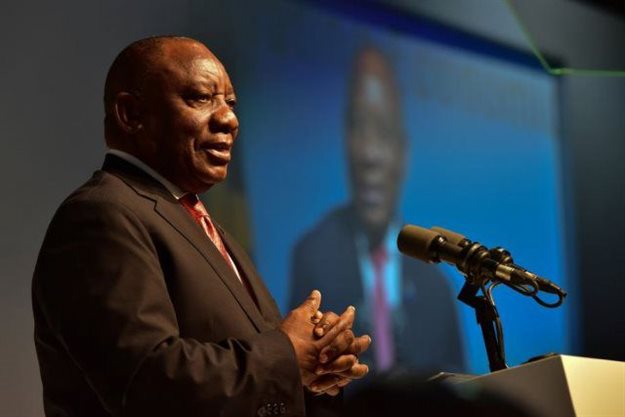President Cyril Ramaphosa says there is no reason to establish a new inquiry to investigate allegations of corruption levelled against Bosasa.
The President was responding to a question by opposition leader Mmusi Maimane during a question and answer session in the National Assembly on Thursday.
Maimane had asked President Ramaphosa whether he intends to institute a full-scale independent inquiry - headed by a retired judge to be selected by the Chief Justice - to further investigate all allegations of State capture that involve Bosasa, now known as African Global Operations, following the revelations made in the Judicial Commission of Inquiry into State capture.
“It is a matter of public record that the commission is indeed investigating various allegations with respect to Bosasa, now known as African Global Operations.
“I have already deposed an affidavit to the commission regarding any contact or dealings I may have had with persons who have either appeared before the commission or have been named at the commission in one form or another.
“I have also said that I would be willing to appear before the commission at any time that the commission would want to hear me on any matter that may assist them in their work.
“There is therefore absolutely no reason to establish a new inquiry to investigate a matter that is already being investigated by a sitting Commission of Inquiry,” he said.
The President said the commission, which former President Jacob Zuma appointed in January last year to investigate allegations of State capture, corruption and fraud in the public sector, was equipped through its terms of reference to probe the allegations that Maimane raised in his question.
According to its terms of reference, among other things, the commission shall inquire into, make findings, report on and make recommendations concerning the nature and extent of corruption, if any, in the awarding of contracts and tenders to companies, business entities or organisations by government departments, agencies and entities.
In particular, whether any member of the national executive, including the President, public official or functionary of any organ of State influenced the awarding of tenders to benefit themselves, their families or entities in which they held a personal interest.
President Ramaphosa said it should be obvious from the existing terms of reference that the Commission of Inquiry into State capture has both the mandate and the authority to investigate the matters which Maimane raised.
“As a country, and as leaders, we should direct our efforts towards supporting the Zondo Commission of Inquiry and urging all those with information relevant to its mandate to make themselves available to the commission.
“We need also to support and equip the National Prosecuting Authority to pursue investigations and prosecutions where there is evidence of criminality.”
Regarding Public Protector Busisiwe Mkhwebane’s report, in which she concludes that the President violated the Executive Ethics Code with regards to a donation received for his 2017 ANC presidential campaign, President Ramaphosa said the matter has been taken on urgent judicial review.
“We should allow the courts to make a determination on this matter. Let us give the courts the opportunity to deal with this matter – after which we can have a political discussion.”
In a statement by the Presidency in July, the President said the Public Protector’s report is fundamentally and irretrievably flawed, something which had been strongly confirmed by his legal representatives.
“The report contains numerous factual inaccuracies of a material nature. The findings are wrong in law, are irrational and, in some instances, exceed the scope of the powers of the Public Protector,” the President said in that statement.
He had said given these deficiencies, and consistent with the Constitutional architecture, it is appropriate that the courts make a final and impartial determination on this matter.




























